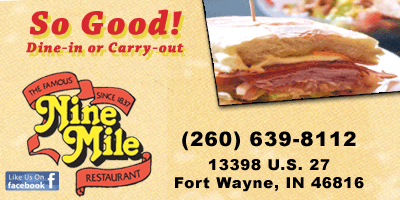Heavens To Mergatroyd

As we get older many things change not only within our bodies but with the language we speak. It’s no wonder we often can’t remember things because many of the words and expressions we’re used to using aren’t around any longer.
For example, when we get frustrated because something doesn’t work correctly or someone is late, we might exclaim, “That’s the last straw!” Now who says that and what does it mean?
This term is a shortening of “The straw that broke the camel’s back,” which conveys a vivid image of an overloaded animal being given one slight additional weight. The expression dates from the mid-1800s, and replaced the earlier “The last feather that breaks the horse’s back.”
“Gee whillikers,” it turns out there are more of these lost words and expressions than “You can shake a stick at” or than “Carter has liver pills.” As old expressions become obsolete because of the inexorable march of time and technology, we no longer say, “Don’t touch that dial,” “It’s a carbon copy,” “Don’t take any wooden nickels,” “You sound like a broken record” and “This is a fine kettle of fish.”
And there’s many more. Remember when you were “Knee high to a grasshopper” and used expressions such as “In like Flynn,” “Living the life of Riley” and told your friends “See you in the funny papers?”
We wake up from what seems like a short nap and before we can say, “Well, I’ll be a monkey’s uncle” we discover the words we grew up with have vanished. Long gone are: “Fiddlesticks,” “Going like sixty,” “Wake up and smell the roses” and “Not for all the tea in China.” And before we’re “Hung out to dry” we discover we’re not quite “Up to snuff” any longer.
Things are not “Hunky Dory” if we refer to our vehicle as a “Jalopy” because young people don’t know it means an old car. And we used to have a whole lot of “Moxie” and could “Straighten up and fly right,” but “Jumping jehoshaphat,” now nothing is “Swell” any more.
“Oh, my aching back!” If we continue to talk in the past, we’ll be called a “Knucklehead,” a “Nincompoop” or a “Pill” by those younger around us or “Hung out to dry!” “Heavens to Betsy,” we don’t know what to say any more. Many of the expressions we used to use daily have “Gone by the wayside” like “Beehives,” “Pageboys,” “Spats,” “Knickers,” “Fedoras,” “Poodle skirts,” “Saddle shoes” and “Pedal pushers.”
“Kilroy was here” but he’s not any longer! Our familiar words and expressions are gone like “The milkman” and the “Telephone booth!” And that leaves us to wonder where Superman will find a place to change in the future.
What’s the origin of the title phrase “Heavens to Murgatroyd?” It dates from the mid-20th century. The expression was popularized by the cartoon character Snagglepuss, a regular on the Yogi Bear Show in the 1960s.
And if appearance is anything to go by, Snagglepuss was the template for the later Pink Panther. The character had two catchphrases, “Exit, stage left” and “Heavens to Murgatroyd” — a variant of the earlier “Heavens to Betsy.”
Enough of this “Monkey business!” We’ll “See you later, alligator.” “Okeydokey?”
- A July 4th Mystery Or Strange Coincidence? - July 5, 2024
- What Is Flag Day All About? - June 7, 2024
- ‘Mayday!’ & May Day - May 10, 2024


